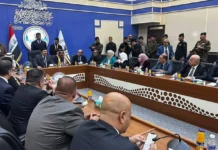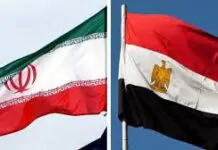Banking Reform Between The Strictness Of The Standard And The Realism Of Implementation
Economic 09/22/2025 Dr. Mustafa Akram Hantoush The Central Bank of Iraq and the local banking system are going through a critical phase that does not tolerate gray solutions.
After the Central Bank contracted Oliver Wyman last year to conduct a comprehensive study, the initial report was submitted a few weeks ago, followed by the final report, which included a package of mechanisms to address structural imbalances and regulate dollar transactions.
In practice, we are faced with a reform document that establishes a qualitative shift in governance, compliance, and capital. At the same time, it challenges banks—especially those that are struggling or facing sanctions—to test their ability to quickly adapt to a complex operating environment.
Among the most prominent recommendations are raising the capital of all banks to 400 billion dinars, with $2.4 billion to be repaid over four years, and setting clear conditions for mergers or liquidations, in addition to restructuring ownership so that relatives’ stakes do not exceed 10 percent.
These conditions, while logical from the perspective of increasing capital strength, strengthening governance, and reducing conflicts of interest, represent a clear challenge to a group of banks facing regulatory restrictions, sanctions, or fragile capital and liquidity.
Therefore, I expect—based on a technical reading of the market and banks’ capabilities—that the Central Bank will move to extend the implementation horizon to three years, instead of the previous deadline of the end of this year, while maintaining strict targets and interim accountability.
The essence of reform here is not in announcing the numbers, but in converting them into a realistic timeline that helps banks achieve compliance without disrupting the financial system.
A capital increase of this magnitude, in a market where financing capabilities remain limited and governance is uneven among banks, requires sufficient time to complete well-thought-out merger deals or orderly divestments.
It also requires building internal capabilities in risk management, combating money laundering, complying with dollar transfer restrictions, and rehabilitating digital and regulatory infrastructure.
On the other hand, there is a dual reform path that distinguishes between banks that choose to operate locally under close supervision by the central bank, with improved standards suited to the domestic market, and other banks that wish to integrate into the international financial system, fully adhering to global standards and international technical partnerships such as Oliver Wyman.
The importance of this approach lies in its recognition of the varying starting points among banks and the structural flexibility it provides to the system, reducing the cost of adaptation, without compromising the ultimate goal: a safer, more transparent sector that is more connected to the global market.
Between rigor and flexibility, we need implementation governance that is no less important than the content of the document itself.
This means forming joint technical committees between the central bank and the banks to oversee the procedural details of each component:
How should capital be raised? In what timeline?
What are the minimum standards for board governance and relative ownership?
How should dollar channels be managed and trust restored with correspondent banks?
What are the interim progress thresholds that will be rewarded with gradual liberalization?
Having a roadmap with clear timelines transforms the document from a statement of intent into a measurable and accountable performance contract.
As for mergers and liquidations, what is required is not a race to extinguish brand names, but rather market engineering that preserves depositors’ rights and reduces moral hazards.
A successful merger requires matching assets and liabilities, cleaning up loan portfolios, re-pricing risks, and managing the transition of systems and personnel without disrupting customer services.
An orderly liquidation requires a clear toolbox: a bridge bank when necessary, transparent compensation mechanisms, and a timetable that ensures the resolution does not turn into a confidence shock. In the background is the dollar issue, the greatest test of confidence.
Regulating transactions is not measured solely by the number of restrictions, but rather by banks’ ability to demonstrate actual compliance through Know Your Customer (KYC) systems, tracking transactions, and compliance with sanctions.
Success here is directly reflected in reducing remittance costs and restoring correspondent channels, which supports trade, reduces pressure on the parallel market, and improves the pricing of sovereign risks. Realism does not mean complacency.
A delicate balance is required: a carefully considered timeline that allows banks to reposition, coupled with stringent interim checkpoints and regulatory rewards tied to actual performance rather than promises. https://alsabaah.iq/120864-.html
Iraq Is Considering Establishing A Commercial Zone To Market And Export Agricultural Products.
Economy | 09/22/2025 Mawazine News – Baghdad The Ministerial Council for the Economy announced today, Monday, that it will discuss the Ministry of Commerce’s proposal to establish a commercial zone dedicated to agricultural products and agricultural supplies.
A statement issued by the Council, received by Mawazine News, stated that “Minister of Planning, Mohammed Tamim, chaired the 30th session of the Ministerial Economic Council, which was held at the Council building, in the presence of the Ministers of Finance, Trade, Agriculture, Industry, Labor and Social Affairs, the Secretary-General of the Council of Ministers, the Governor of the Central Bank of Iraq, the Undersecretary of the Ministry of Oil, the Deputy Chairman of the National Investment Commission, and the Prime Minister’s advisors for economic and legal affairs.”
According to the statement, the Council hosted during its session, “the Minister of Water Resources, to discuss the reality of the water sector in the country, the water plan for the winter agricultural season 2025-2026, in addition to discussing the Ministry’s proposals related to maximizing non-oil revenues, and ways to support the state’s general budget by increasing the Ministry’s revenues.”
The Council also discussed the Ministry of Trade’s proposal to establish a commercial zone for agricultural products and agricultural supplies, which would be a center for marketing these products and exporting the surplus, with the aim of supporting the agricultural sector and farmers.
It decided to support this step, given its role in encouraging farmers to export their products outside Iraq and achieving a financial return that contributes to enhancing the national product.
In a related context, the Council hosted the head of the Iraqi Contractors Union to discuss the reality of the contracting sector and service projects, as well as contractors’ dues for completed or under-construction projects.
It decided to continue supporting this vital sector and disburse dues after determining the percentages of completion, to ensure the continuity of work and improve the level of services provided to citizens.
The Council also decided, according to the statement, that the General Directorate of Industrial Development would grant establishment licenses to establish new factories for the production of prime coat, asphalt, and industrial solvents, in accordance with the provisions of Industrial Investment Law No. (20) of 1998, provided that the factories are equipped with raw materials available at the Ministry of Oil. https://www.mawazin.net/Details.aspx?jimare=267222
A Slight Decrease In The Dollar Exchange Rate In Baghdad
Economy | 09/22/2025 Mawazine News – Baghdad – The exchange rate of the US dollar against the Iraqi dinar recorded a decline in Baghdad’s local markets on Monday morning.
The dollar price decreased in the Al-Kifah and Al-Harithiya stock exchanges to 141,550 dinars for every $100, while yesterday, Sunday, the price recorded 142,150 dinars for every $100.
Selling prices also decreased in exchange shops in Baghdad’s local markets, where the selling price reached 142,500 dinars for every $100, and the purchase price reached 140,500 dinars for every $100. https://www.mawazin.net/Details.aspx?jimare=267200
For current and reliable Iraqi news please visit: https://www.bondladyscorner.com






